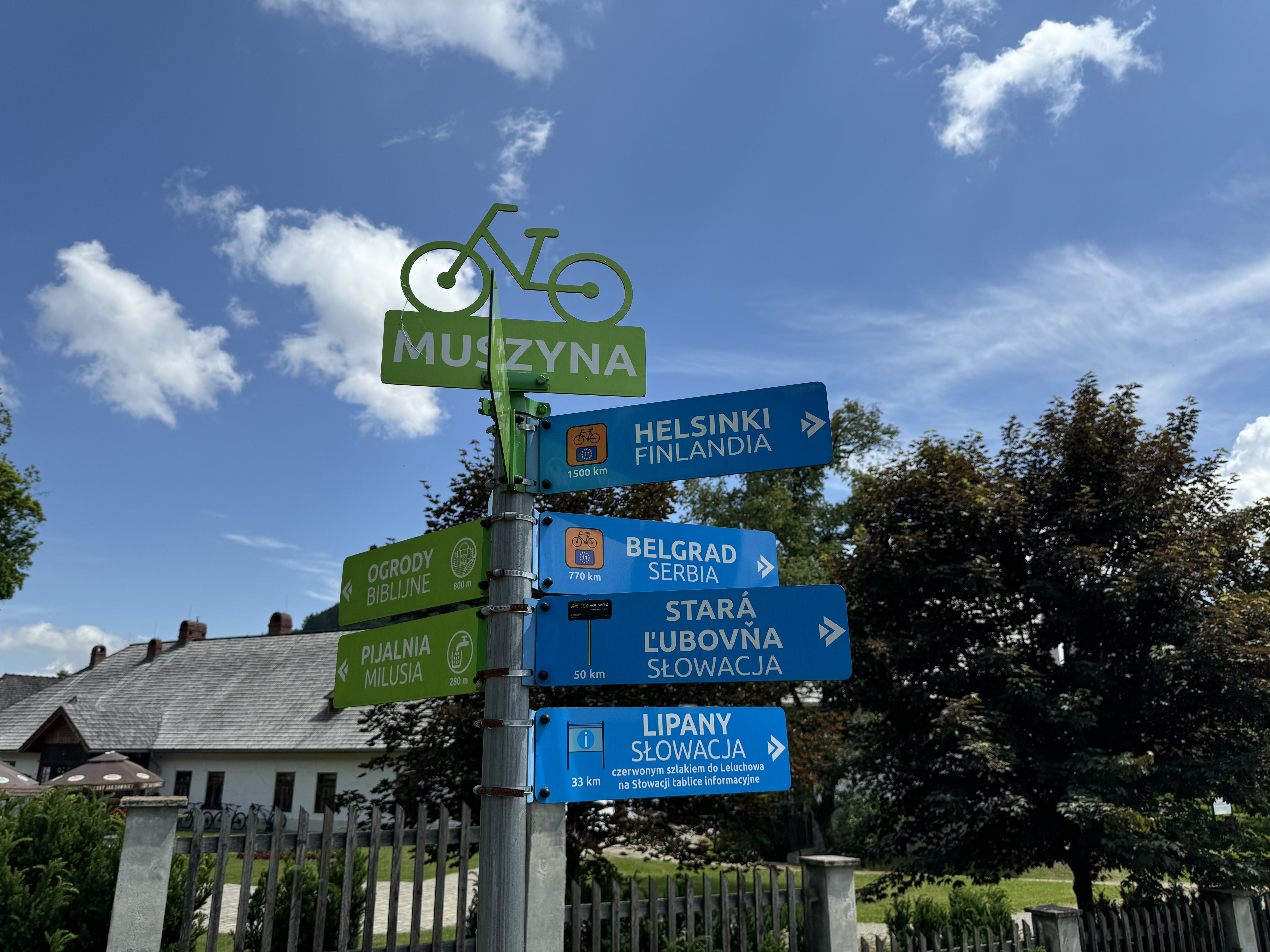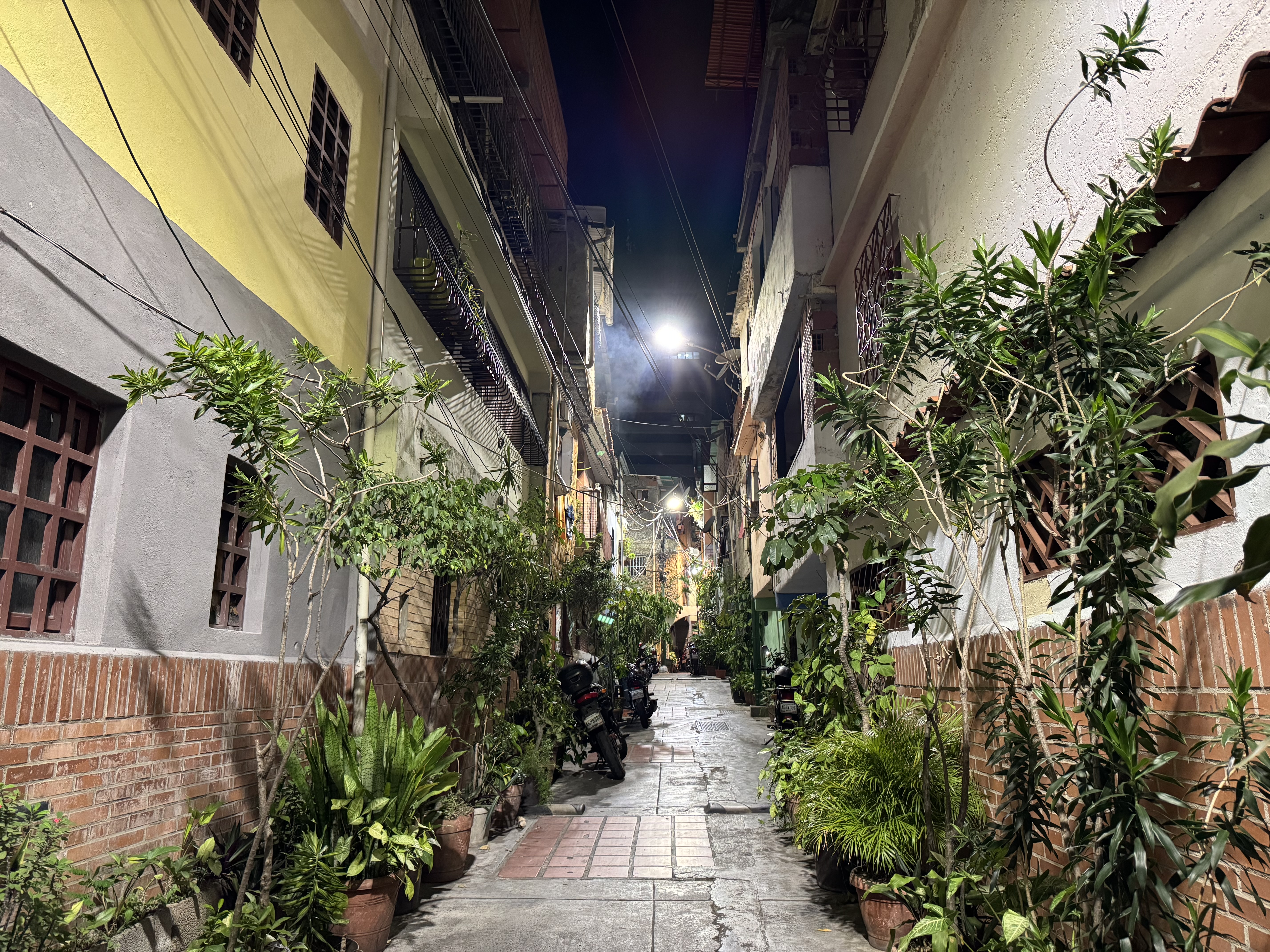From Caracas to Krakow: A Season of Stillness and Movement

Muszyna, Poland, May 2024
It’s Easter time, and I’m spending it in Caracas. The city has taken on a slower, quieter rhythm, as most people have left to spend the long holiday with their families. Some have headed to the coast, others to the countryside—five days off is not a small thing here, and Venezuelans certainly know how to make the most of it. For me, staying behind in the city has its own charm. The streets are calmer, the air feels a bit lighter, and there’s a rare kind of peace in the usually buzzing corners of Chacao.
Even though I’m not spending Easter with my family this year, I find myself in a state of anticipation. In just over a week, I’ll be heading to Europe—starting with Lisbon, and then on to Krakow. I’m counting the days. From Krakow, I’ll travel to Nowy Sącz to spend time with my Mum. It’s been too long since we last had an extended stretch of time together, and I’m really looking forward to slowing down with her, enjoying our routines, sharing meals, and catching up in the way that only happens when you’re physically close.
But this trip is also about adventure. After Poland, Mum and I will fly to Malta for a few days. Neither of us knows the island well, so we’ll be discovering it together. Valletta, Mdina, seaside walks, fresh food, the layered history of the place—all of it sounds perfect. And from there, we move on to the part of the journey that I’ve dreamed about for years: Uzbekistan.
Tashkent, Samarkand, Bukhara, and if we can manage it, Khiva. I’ve long been fascinated by the Silk Road, and to finally visit these cities of blue-tiled mosques, ancient madrasas, and sun-drenched squares is a real gift. We also hope to take a day trip from Tashkent to Shymkent in Kazakhstan—a chance to briefly cross into another country and experience something new. It will be quite the journey, but what makes it even more meaningful is that I’ll be doing it with my Mum.
And there’s a chance our little circle may grow. If things align, my Venezuelan friend who now lives in Madrid may be able to join us in Krakow for a few days. It depends on his work schedule, but we’re hopeful. Just the thought of bringing together people I love, across borders and chapters of life, fills me with quiet joy.
Caracas, meanwhile, continues to be its contradictory self. As I mentioned in my recent note to friends, work remains intense. The humanitarian space is under pressure, and the world doesn’t seem to be easing up. But I am trying to stay present and grounded. The jasmine is blooming, the sunsets are golden, and there are still small, beautiful things to hold onto.
This Easter, I’m grateful for what is coming, for what I carry, and for the simple gift of being able to look forward.
Finding Beauty Next Door: A Stroll Through Bello Campo

Bello Campo of Chacao, Caracas, Venezuela, April 2025
Last night, I took a spontaneous walk through the charming streets of Bello Campo in Chacao, and to my surprise, I found myself completely enchanted. It’s remarkable how close it is to where I live—practically in my backyard—and yet, somehow, I had never properly discovered it until now. That discovery made the experience even more special.
Bello Campo is a residential neighbourhood within the municipality of Chacao in eastern Caracas. While it may not have the same level of renown as Altamira or El Rosal, it has a distinct charm that makes it worth exploring. The neighbourhood is known for its peaceful tree-lined streets, colourful houses, and a strong sense of community. One of the key features of the area is Parque Bello Campo, a green and well-kept public space that is often filled with joggers, families, and dog walkers. It serves as a sort of natural lung for the neighbourhood, offering a refreshing contrast to the busy urban life surrounding it.
Historically, Bello Campo was part of a larger rural zone in the early 20th century, characterised by agricultural activity and scattered estates. With the rapid urban development of Caracas during the mid-20th century, especially in the post-oil boom era, the area evolved into a middle-class residential enclave. Over time, it retained a quieter, more family-oriented character, even as the city around it grew more chaotic and densely built.
One of the hidden gems of the neighbourhood is its proximity to the Centro Cultural Chacao, a modern space for the arts that hosts concerts, exhibitions, and theatre performances. The cultural energy from this venue seems to spill into the streets of Bello Campo, adding a creative pulse to the otherwise calm environment.
My walk through Bello Campo last night was simply wonderful. The past week had been particularly stressful at work, filled with heavy conversations and high-stakes decisions. But as I wandered through the neighbourhood, the pressure seemed to dissolve. I found myself slowing down, breathing more deeply, and simply enjoying the surroundings. The city felt different—lighter, more human.
The streets were alive with people enjoying the evening air, dogs happily trotting beside their owners, and neighbours exchanging greetings as they passed one another. Despite the late hour, the atmosphere felt safe, open, and inviting. What struck me most were the people. I met several locals along the way, and every single one of them was friendly, curious, and welcoming. Conversations flowed easily, and there was genuine joy in sharing stories with someone from outside. It reminded me, once again, of how powerful kindness and human connection can be—even with strangers, and especially in unexpected places.
Bello Campo is now firmly on my map. I’m already looking forward to going back—this time with intention—and seeing what more this lovely little corner of Caracas has to offer.
Holding the Line: Believing in Humanitarian Values Amid Doubt

Can We Save Humanitarianism?
I’ve just finished reading an article that stirred something deep in me:"Capitalism co-opted humanitarianism. But we can save it". It has made me pause, reflect, and weigh the path I have chosen for myself – this work that is not just a job, but the very foundation of who I am.
The author, Paul Currion, does not pull punches. He argues that humanitarianism has become entangled with capitalism to the extent that it has been fundamentally altered. Our sector, once rooted in a radical commitment to dignity and solidarity, now increasingly operates within a system driven by competition, branding, and efficiency metrics. It is a hard truth to swallow, but one that resonates. And it made me think: is this still the work I want to do?
I am proud of the work I do. Deeply proud. It has given my life purpose, anchored me in the world, and connected me to countless individuals who inspire me every single day. But I won’t deny that lately, I have also felt moments of discomfort—of shame, even. The way the world is evolving, the way power and profit seep into the spaces meant to protect and uplift the vulnerable, sometimes makes me wonder if we are losing sight of what matters most.
Currion's article challenges us to consider whether the humanitarian system, in its current form, is even salvageable. Have we become too comfortable with our own contradictions? Are we perpetuating the very systems we claim to resist? These are not easy questions. And while my instinct is to defend what we do—to point to the lives saved, the rights defended, the disasters mitigated—I also know that defensiveness cannot substitute for reflection.
Reading the article felt like holding up a mirror. It reminded me that while the principles of humanitarianism still pulse at the heart of our work, the system surrounding it is increasingly shaped by market logic, performance indicators, branding, and competition. And while some of these elements are unavoidable, even necessary, they risk crowding out the very values we set out to defend: humanity, impartiality, solidarity, and dignity.
So again: is this still the work I want to do? The answer, for now, remains a clear yes. Because despite the frustrations, despite the increasing difficulty of separating what’s good from what’s questionable, I still believe in the core of it. I still believe in the people, in the actions taken quietly in forgotten corners of the world, in the lives changed through compassion, perseverance, and presence.
But staying in this work also means a constant reckoning. It requires effort to focus on what is noble about our mission, and at the same time, to challenge what is wrong within it. To speak up when values are sidelined, to resist the temptation of cynicism, and to keep showing up with heart and integrity.
Currion ends his article with a call to reclaim humanitarianism by embracing its roots—as a political act, as a radical form of solidarity. That struck a chord. If we are to save humanitarianism from itself, we must stop pretending we are neutral technocrats and start acting like principled agents of change.
And so today, I feel both unsettled and determined. Unsettled by how fragile our principles have become in the face of power. But determined to hold onto them anyway. To defend the values that brought me into this work, and to ensure they don’t get drowned out by noise, bureaucracy, or convenience.
Perhaps this is what it means to grow in this field: not to stop believing, but to believe harder. And to keep going, especially when it is hardest to do so.
